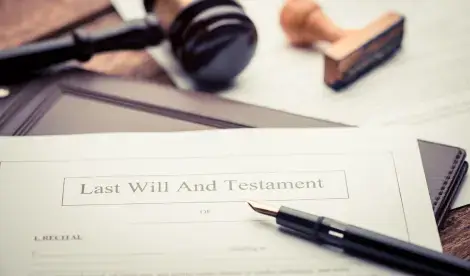Changing a Will after death
A Deed of Variation allows beneficiaries to redirect their entitlement from a Will or from an Intestacy. You may want to do this if you do not want to receive all the assets you are due to receive. They are often used as an estate and inheritance tax planning tool. Here are some examples to help you understand how they work.
Redirecting to grandchildren
Mr A is a wealthy man and due to receive a legacy of £50,000 under his late mother’s Will. He decides he does not need this money, so he executes a Deed of Variation redirecting it to his children.
If Mr A had given the money to his children, he would have to survive 7 years for this gift to fall outside of his estate for inheritance tax purposes. Under a Deed of Variation the legacy is treated as though it had come directly from his mother’s Will so the 7-year rule does not apply.
Redirecting to utilise reliefs
Mrs A is due to inherit 500 shares in her late husband’s Company. Transfers on death between spouses are inheritance tax-free. However, her legal advisor tells her that the Company shares are tax free in their own right so they could pass straight to their children.
Mrs A executes a Deed of Variation redirecting the shares to a flexible trust under which she and her children can benefit. This keeps the value of the shares outside of her estate.
Does it matter if the money or assets have already been distributed?
If you have already received the money or even if the assets have changed in nature since the death, say a property you were due to receive has been sold, so long as you are within the two year timeframe (see below) you can still execute a Deed of Variation to save inheritance tax.
Careful considerations
There are some limitations on how Deed of Variations work, for example:
- To achieve the inheritance tax saving, it must be made within 2 years of someone dying
- You can only redirect or amend the share or amount of the estate you are due to receive
- Certain wording needs to be included for the Deed to work for tax purposes
- You can create trusts by way of a Deed of Variation but there are some tax implications in doing so.
Subscribe to our newsletters
Our complimentary newsletters and event invitations are designed to provide you with regular updates, insight and guidance.
You can unsubscribe from our email communications at any time by emailing [email protected] or by clicking the 'unsubscribe' link found on all our email newsletters and event invitations.
This site is protected by reCAPTCHA and the Google Privacy Policy and Terms of Service apply.













